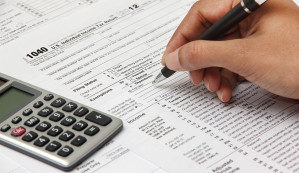
May
Finished Your Taxes? Now What Records Should You Keep?
You’ve dotted the i’s, crossed the t’s, and set up a shortcut to the refund tracker on your browser. Now you have a pile, or hopefully a hard drive, full of receipts and documents pertaining to your financial circumstances. Do they really need to take up precious space? Generally, it depends on what the document proves or records. The below will help you evaluate what to hold and what to toss.
When determining whether you should keep a record, ask yourself a few questions.
What Can it be Used For?
You probably have a variety of documents. Take a look at each one and determine its future use. If it supports an item of income, deduction or credit shown on your tax return, hold on to it until the period of limitations for that tax return runs out. If it’s a receipt from charity you donated 5 years ago, you can probably toss it, or scan it and archive. Also, documents may not be used for tax purposes, but perhaps your insurance company or creditor needs to see proof of income.
Is There a Chance I’ll be Audited?
Auditing means a magnifying glass will be placed over your finances, receipts, and more by the IRS. Correlating with the period of limitations, it’s best to keep records that will support the way in which you filed your taxes for as long as you can be audited. The period of limitations is the period of time in which you can amend your tax return to claim a credit or refund, or the IRS can assess additional tax. The periods range from 3 to 7 years; keep all records 3 years from the date you filed the original return; keep records for 7 years if you file a claim for a loss from securities or bad debt deduction; keep records for 6 years if it supports 25% or more of the gross income shown on your return; and keep employment tax records for at least 4 years after the tax is paid.
Does It Relate to Property?
When it comes to property, the rules are a little different. Keep these records until the period of limitations expires for the year in which you release the property. The records aid in figuring out depreciation, amortization, or depletion deduction, as well as calculating gain or loss when selling the property.
Can It Help with Filing Taxes in the Future?
Digital records don’t take up space in your closet, just your hard drive or external drive, so it may be worth keeping but archiving. Copies of filed tax returns can be invaluable for next year’s taxes, and so on. For many people, filing taxes means filing an amended return.
In general, we recommend keeping anything that has even a slight chance of being valuable as a digital copy and in an archive folder. If it’s a paper copy, don’t forget to shred to avoid identity theft.
Related Articles
3 Ways to Keep Business and Personal Finances Separate
Your business life and your personal life are bound to run together; you hit the gym on your lunch break, grab a meal with your client, and buy your boss a friendly holiday gift. However, it’s important to separate the..
Read MoreHow to Claim the Premium Tax Credit
Tax credits are oft-sought but not oft-claimed enough. This is due to taxpayers generally overlooking what’s available, or simply being out of the loop. As the rule goes, the more tax credits you claim, the less tax liability you’ll have…
Read More



